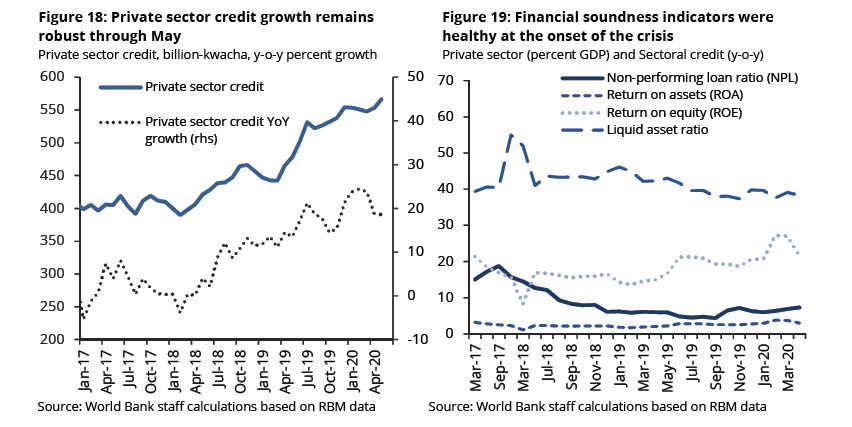World Bank spells doom for banks
The World Bank says the Covid-19 pandemic is expected to increase levels of non-performing loans (NPL) due to liquidity challenges which in turn, could affect banks’ profitability and capital adequacy.
In its July 2020 Malawi Economic Monitor published last week, the bank said the pandemic will, however, see a decline in lending growth.

Reads the report in part: “Lending is concentrated in a few sectors such as wholesale, agriculture and manufacturing, and some banks have high exposure to single clients.
“A downturn in any of these sectors or firms could lead more loans to become non-performing.”
Published figures from the report indicate that the ratio of NPLs to total loans rose to 7.3 percent in April 2020, up from six percent in January and a low of 4.3 percent in September 2019. “
This rate is considerably lower, though, than the 18.8 percent of September 2017 but still above the five percent minimum regulatory benchmark.
Reserve Bank of Malawi (RBM) figures show that as of April 2020, the banking system recorded sound levels of profitability, with a high return on equity rate of 21.6 percent.
Although a decline from February and March, this is still historically high, liquidity was also strong, with the liquidity to total asset ratio at 38.2 percent.
A stress test to assess the impact of Covid-19 on Malawi’s banking sector by RBM also assumed that NPLs would increase from the current K40 billion to K125 billion by end June and K 331 billion by end December 2020.
In such a scenario, two banks could fall below the minimum capital regulatory ratio requirements by June 2020, which could spread to all banks by December 2020.
Profitability would decline for all banks, but only five out of nine banks could still remain reasonably profitable under both scenarios.
RBM said in its December 2019 Financial Stability report that the central bank shall continue to review and assess individual bank’s stress testing exercises and require concrete actions where vulnerabilities are identified.
Chancellor College economics professor Ben Kaluwa observed that it would take longer before banks recover from NPLs as people become stressed and fail to service their loans.
Bankers Association of Malawi (BAM) chief executive officer Violette Santhe also observed that NPLs have become a risk to banks as they are unable to recover bad loans due to challenging economic environment, poor credit culture and legal challenges.n




